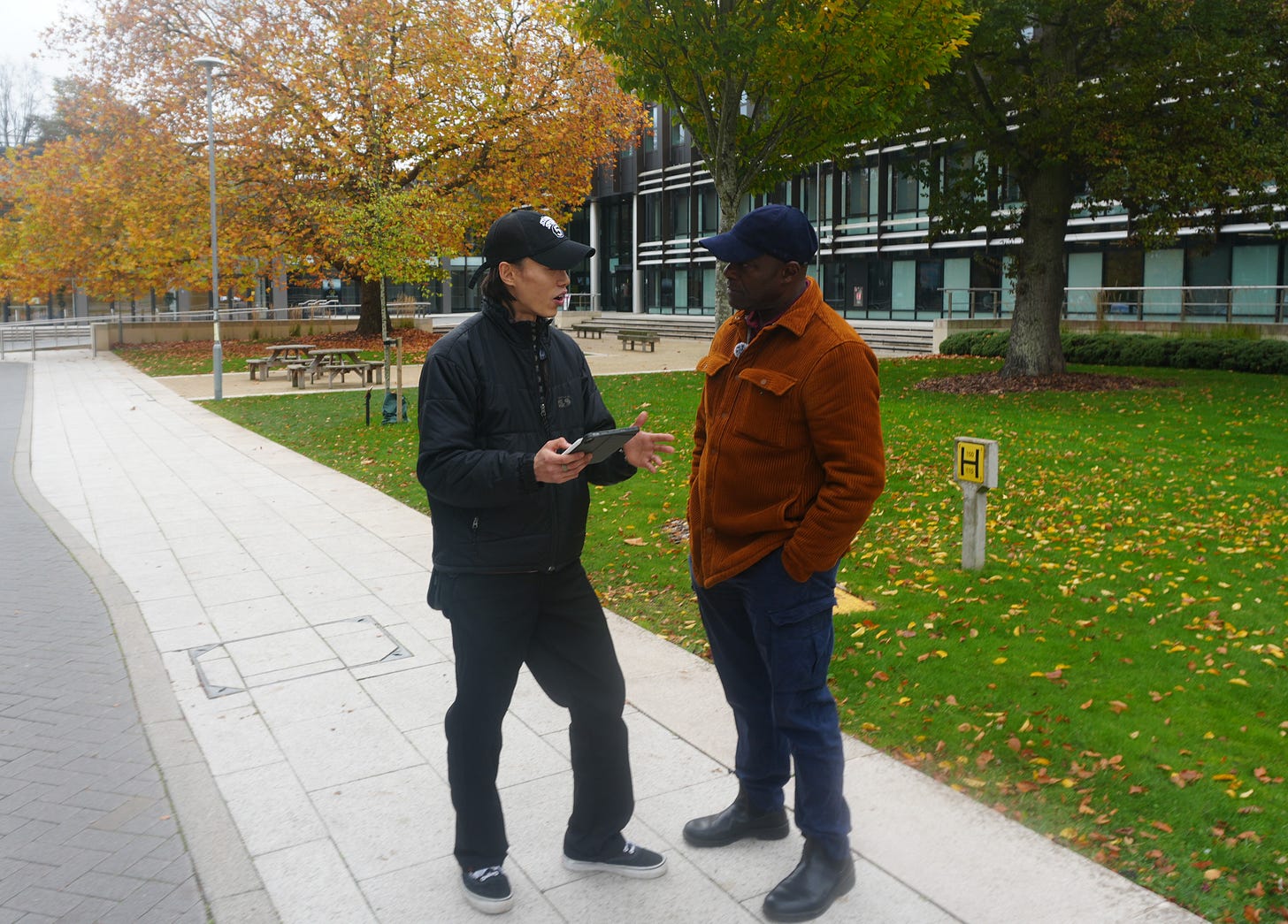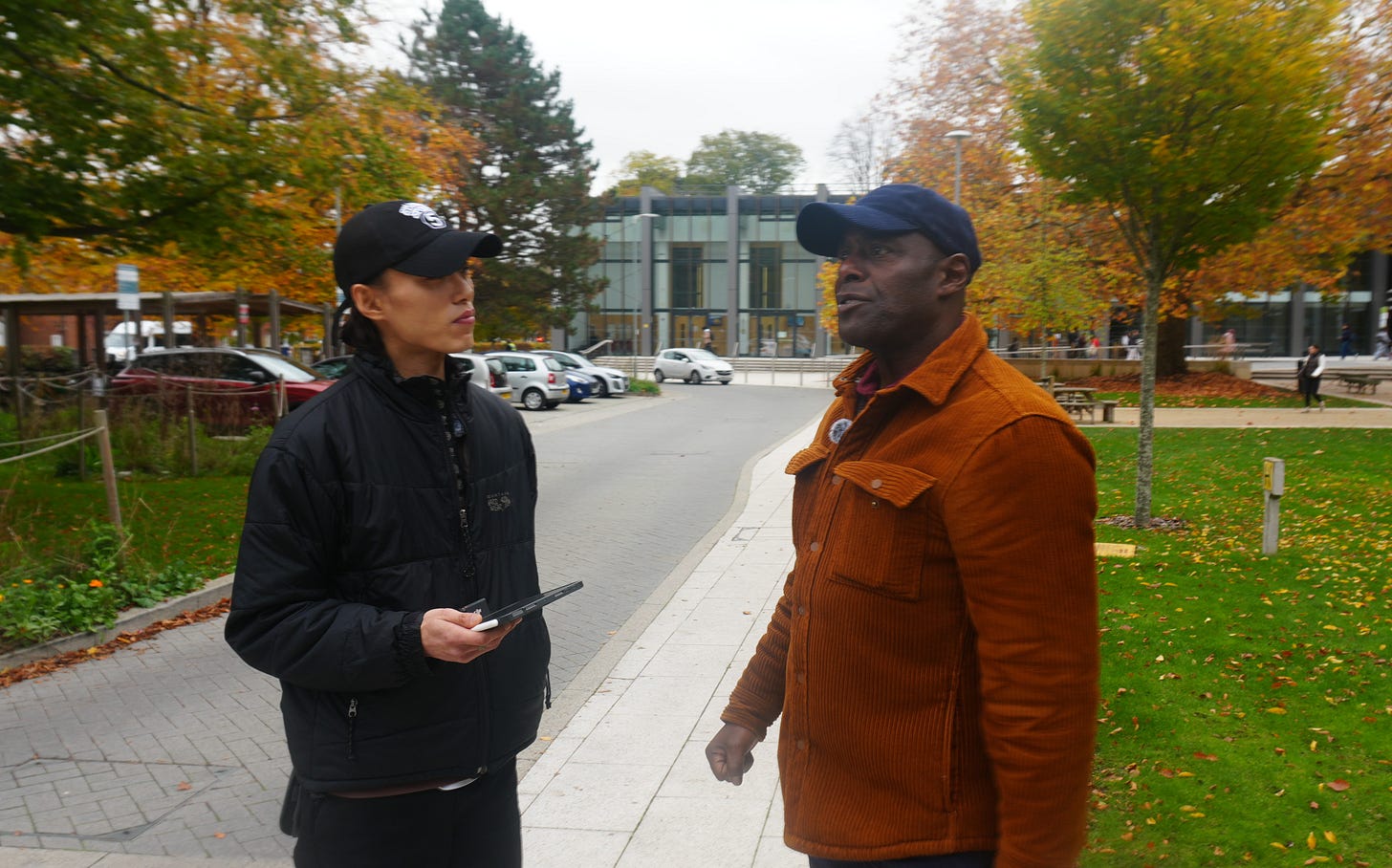Paterson Joseph on Sancho, empathy, and the theatre of identity
A live performance, a rediscovered archive, and the radical empathy of seeing what history refused to see
When Paterson Joseph discovered the 18th-century writer and composer, Charles Ignatius Sancho a missing page of British history snapped open.
“I grew up thinking people who looked like me weren’t here before the twentieth century,” he says. “Then I found Sancho — and my head blew off.”
Curiosity became a pursuit. He followed the threads to Roman Britain, to Tudor courts, to names long footnoted or omitted. “The records existed,” he says. “What’s revealing is who chose not to see them.”
That revelation — and two decades of research that followed — culminated in Sancho & Me: For One Night Only, a live performance Paterson brought to Oxford Brookes University on 30 October 2025, where students, staff, and locals filled the auditorium to witness a story once buried in the archive brought to life.
Part biography and part dramatised reading from his award-winning novel The Secret Diaries of Charles Ignatius Sancho, the performance followed Sancho’s extraordinary life — from his birth on a slave ship in 1729 to his emergence as a composer, writer, shopkeeper, and the first man of African heritage to vote in Britain. Blending Sancho’s 18th-century letters with his own experiences growing up Black and British, Paterson created an evening of storytelling and music that bridged centuries, tracing a shared language of resilience, identity, and belonging.
Trained at the London Academy of Music and Dramatic Art (LAMDA) and seasoned on national stages including lengthy stints at the Royal Shakespeare Company, Paterson Joseph remembers classical theatre as “spaces that often-felt alien to me. Performing Sancho offers me something else: a sense of belonging. Ignatius was a passport into a history that already included me.”
Paterson Joseph argues that live performance does something television can not. “When someone stands in front of you and says, ‘This is true,’ you feel it. That’s why leaders fear conversation — it changes hearts.”
Sancho & Me is a reminder that history is not a museum label, it’s a live exchange. Paterson’s argument is simple and demanding: if reporting cannot make room for empathy, it will miss the human shape of truth. The curtain falls, but the conversation keeps working — heart by heart — long after the applause ends.
His critique spills into journalism when he says, “Neutrality is a myth. Facts are chosen. If you can’t empathise with a human story, you might as well send AI to collect data.” For Paterson, empathy isn’t bias; it’s a method for hearing what the archive missed.
The archive, he notes, was never empty. He points to Africans in Roman Britain, John Blanke in Tudor courts, and Sancho himself — writer, businessman, and voter. “What’s shocking isn’t that the records exist, but who chose not to see them.”
Asked what he’d investigate as a columnist, he chose identity. “We’re all actors trapped in costumes we didn’t pick — gendered, classed, cultural. The danger is believing the costume is the person. Some of us are the Corduroy Tribe; others wear Suede. Then we will go to war over it.” The metaphor drew laughs, but the point held: identity can be both performance and prison.
Reviving Sancho, then, is not nostalgia; it’s an argument for a more capacious national memory. “History is richer, messier, more human than we’re taught,” Paterson says. On stage, he performs a life. Offstage, he reminds us of whose lives were kept off the page — and what changes when they step into the light.




